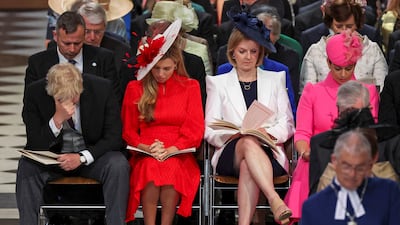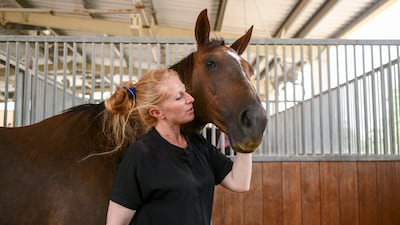The British are an inventive nation. A long list of British inventions, which includes Tim Berners-Lee and the World Wide Web, stretches back to Isaac Newton and the reflecting telescope in 1668.
There are also less familiar inventions. Joseph Addison created the world’s first mass-produced toothbrush in the 1770s and his brand, Wisdom, still exists today. There’s also the seed drill, the steam engine, the jet engine and cats eyes to show the boundaries of road lanes.
However, our greatest but unnoticed invention is the invention of tradition itself. We have been inventing traditions for years. We then pretend that things have "always been done this way". They haven’t.
In 1969, there was a glorious televised ceremony at Caernarfon Castle in Wales, the investiture of the Prince of Wales, Prince Charles, who is next in line to succeed Queen Elizabeth II. The ceremony appeared to have been handed down for centuries. The first "Prince of Wales" was created in 1301 (in Lincoln, in England) but the ceremony of "investiture" at Caernarfon Castle was really invented in 1911, and re-invented in 1969 for television.
Televised ceremonies are now at the heart of British invented traditions including this month’s platinum jubilee. Queen Elizabeth has led the UK through 70 years of change from the Second World War and the end of empire into whatever future post-Brexit Britain may have for itself.
But here’s another very different British tradition: big royal celebrations were once regarded with suspicion.
At the zenith of British power in the 19th century, the funerals of national military heroes – Admiral Lord Nelson, the Duke of Wellington – were marked with more public outpourings and parades than royal events, but these showy parades were not much liked. Here’s the Illustrated London News in 1852 on the Duke of Wellington’s state funeral: "The English are said to be a people who do not understand shows and celebrations, or the proper mode of conducting them… unlike the French and other nations of the continent they have no real taste for ceremonial."
By the 1860s and the peak of empire, Robert Cecil, the future prime minister, watched Victoria, the then queen, opening Parliament. He recorded: "Some nations have a gift for ceremonial … in England the case is exactly the reverse. We can afford to be more splendid than most nations; but some malignant spell broods over all our most solemn ceremonials and inserts into them some feature which makes them all ridiculous … something always breaks down, somebody always contrives to avoid doing his part … to interfere and ruin it all."
In 1820, after the defeat of Napoleon, one critical account, The Black Book, was even more dismissive: "Pageantry and show, the parade of crowns and coronets, of gold keys, sticks, white wands and black rods ... are ridiculous when men become enlightened, when they have learned that the real object of government is to confer the greatest happiness of the people at the least expense."
During the platinum jubilee last weekend, the "greatest happiness of the people at the least expense" was mostly in modest street parties, including the one I attended with my neighbours. The historian David Cannadine noted the importance of such rituals and traditions by suggesting that as British hard power waned so the British public’s pride in the soft power associated with the royal family and in its traditions actually increased. Mr Cannadine quoted an unnamed commentator from 1970, saying of the British and Queen Elizabeth: “While people can see the gloved hand waving from the golden coach, they feel assured that all is well with the nation, whatever its true state."
But what is the British nation’s "true state" in 2022? Discontented with our political leaders, rebellious and very uneasy, it seems.
At an event at Westminster Abbey, a large crowd of flag-waving, red-white-and-blue patriotic Britons celebrated Queen Elizabeth. But when Prime Minister Boris Johnson turned up, he was loudly booed. This is a new and surprising "tradition" on a solemn state occasion. It has serious consequences. Once the royal bunting was taken down, Mr Johnson's own MPs contemplated their serious loss of trust in the Prime Minister. They engaged in another British tradition – secretive and ruthless backstairs political plotting.
On Monday, Mr Johnson narrowly survived a vote of no-confidence. But he is still doomed because more than 40 per cent of his own MPs have clearly demonstrated they have no confidence in him. Getting rid of a leader can take weeks or even months but it will happen. Britain will soon have its fifth prime minister since 2010, in a nation that used to pride itself on a tradition of political stability.
For seven decades, Queen Elizabeth has been an island of solidity in a sea of political chaos. There are more rough seas ahead, and Mr Johnson will not for long be captain of the ship. His Conservative friends are generally polite, well-dressed folk, but their tradition is one of utter ruthlessness. When a leader is seen to fail, the Conservative tradition is that of a mutinous pirate crew. They are preparing to throw the captain overboard.
The sharks are waiting, and they are hungry.
































